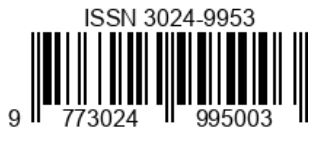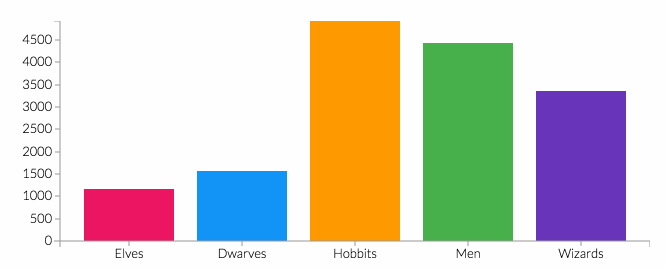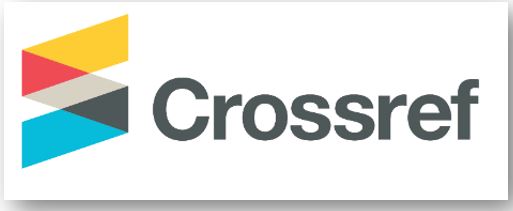Hikmah Jadal dalam Al-Qur'an: Telaah Jadal dalam Proses Pengadilan
DOI:
https://doi.org/10.61231/jie.v3i2.333Keywords:
Jaddal, Al-Qur'an, Debat, Etika, Penafsiran, Hikmah, Komunikasi, Teologi Islam.Abstract
This article examines the concept of “jadal” in the Qur'an, which is a form of discussion or debate used as a means of communication and learning. The study is divided into several important parts. First, the theme of jaddal in the Qur'an is identified and analyzed, showing that jaddal is used to affirm the truth and guide humans towards a deeper understanding of Islamic teachings. Second, the purpose of jaddal is explained as a means of testing and strengthening faith, as well as encouraging humans to think critically and reflectively.Then, the article outlines the procedure of jaddal based on guidance from the Qur'an, which involves the use of rational arguments and thoughtful dialogue. The ethical evaluation of jadal according to the Qur'an emphasizes the importance of maintaining etiquette, honesty, and goodwill in any discussion. In this regard, jadal is seen as an activity that focuses not only on winning arguments, but also on discovering greater truths. The article also identifies the wisdom of jaddal in the Qur'an, namely as an educational tool that enriches religious understanding and strengthens social relations through constructive communication. Finally, the influence of jadal in Qur'anic interpretation is analyzed, showing that jadal can enrich interpretive perspectives and broaden religious understanding. With an analytical and critical approach, this article contributes to the academic literature by offering new insights into the role of jadal in theological and social dynamics in Islam, as well as its relevance in the context of modern society.
References
Alfiyah, A., & Khiyaroh, I. (2022). Teori Mujadalah Dalam Al-Qur’an Penerapan Metode Jidal (Debat) Dalam Konsep Dakwah. Alamtara: Jurnal Komunikasi dan Penyiaran Islam, 6(2), 155–163. https://doi.org/10.58518/alamtara.v6i2.1154
Amrullah, Muhammad Ma’ruf Roqqi. “Uslub Jadal Dalam ALQur’an dan Implementasi di Era Ddigital” 5 (2023).
Anam, Ahmad Khoirul, Rumba Triana, dan Aceng Zakaria. “ProsA IAT: Prosiding Al Hidayah Ilmu Al-Quran dan Tafsir,” t.t. https://www.jurnal.staialhidayahbogor.ac.id/index.php/piat/article/view/580/458.
Baso, S. M. M. (2019). Bahasa Arab Bahasa Al-Qur’an. Artikel Https://Www. Researchgate. Net/Publication/337730355_BAHASA_ARAB_BAHASA_AL-Qur% 27AN. https://www.researchgate.net/profile/Sarah-Mb/publication/337730355_BAHASA_ARAB_BAHASA_AL-Qur'AN/links/5de72e95a6fdcc2837035d76/BAHASA-ARAB-BAHASA-AL-QurAN.pdf
Dahlan, Muh Syawir. “ETIKA KOMUNIKASI DALAM AL-QUR’AN DAN HADIS.” Jurnal Dakwah Tabligh, no. 1 (2014). https://journal3.uin-alauddin.ac.id/index.php/tabligh/article/view/342/313.
Darmawan, R. (2017). JADAL DALAM PANDANGAN PENDIDIKAN DAN KONSELING. Volume 6, No. 1.
Fadillah, N., Azahra, B., Sapri, S., Daulay, F. A., Manjuntak, M. H., Adilla, N., Harahap, A. F., & Sabrina, T. (2024). Keistimewan Bahasa Arab Sebagai Bahasa Al-Qur’an. Atmosfer: Jurnal Pendidikan, Bahasa, Sastra, Seni, Budaya, Dan Sosial Humaniora, 2(1), 146–156.
Fikri, H. K. (2019). Jadal Dalam Pandangan Al-Qur’an Dan Pendidikan Konseling. El-Umdah, 2(1), 56–74.
Kadri, W. N. (2020). Dialektika Komunikasi Pada Debat Pilpres 2019 Dalam Perspektif Al-Qur’an. El Madani: Jurnal Dakwah Dan Komunikasi Islam, 1(01), 49–60.
Nahrawi, A. (n.d.). WACANA DEBAT INKLUSIF: MENYOAL JADAL SEBAGAI PERDEBATAN DALAM AL-QUR’AN. 6(2).
Rangkuti, A. (2017). KONSEP KEADILAN DALAM PERSPEKTIF ISLAM. Vol.VI, No.1.
Roqqi Amrullah, M. M. (2023). USLUB JADAL DALAM AL-QUR’AN DAN IMPLEMENTASI DI ERA DIGITAL. 5 Nomor 2, 33.
Sholeh, Moh. J. (2016). ETIKA BERDIALOG DAN METODOLOGI DEBAT DALAM AL-QUR’AN. El-Furqania?: Jurnal Ushuluddin dan Ilmu-Ilmu Keislaman, 2(02), 176–195. https://doi.org/10.54625/elfurqania.v2i02.2296
Somantri, A. (2017). Implementasi Al-Qur’an Surat An-Nahl Ayat 125 Sebagai Metode Pendidikan Agama Islam (Studi Analisis al-Quran Surah An-Nahl Ayat 125). Wahana Karya Ilmiah Pendidikan, 1(02). https://journal.unsika.ac.id/index.php/pendidikan/article/view/1036
Suyuthi, I. (2009). Al-Itqan fi Ulumil Qur’an.
Syukran, A. S. S. A. S. (2019). Fungsi Al-Qur’an bagi Manusia. Al-I’jaz: Jurnal Studi Al-Qur’an, Falsafah Dan Keislaman, 1(2), 90–108.
Tri Djoyo Budiono. “Pola Argumentasi dalam metode metode Dakwah Mujadalah Nabi Ibrahim.” INTELEKSIA - Jurnal Pengembangan Ilmu Dakwah 2, no. 1 (30 Juli 2020): 1–26. https://doi.org/10.55372/inteleksiajpid.v2i1.75.
Wantu, Fence M. “Kendala Hakim dalam Menciptakan Kepastian Hukum, Keadilan, dan Kemanfaatan di peradilan Perdata,” t.t. https://journal.ugm.ac.id/jmh/article/viewFile/16092/10638.
Zulfikar, Eko. “ETIKA DISKUSI DALAM PERSPEKTIF AL-QUR’AN.” Jurnal Studi Ilmu-ilmu Al-Qur’an dan Hadis 20, no. 1 (20 Oktober 2019): 1–23. https://doi.org/10.14421/qh.2019.2001-01.
Downloads
Published
How to Cite
Issue
Section
License
Copyright (c) 2025 Luluk Indah Kholifatin, Maslahatul Ummah, Abd Kholid

This work is licensed under a Creative Commons Attribution 4.0 International License.
You are free to:
- Share — copy and redistribute the material in any medium or format for any purpose, even commercially.
- Adapt — remix, transform, and build upon the material for any purpose, even commercially.
- The licensor cannot revoke these freedoms as long as you follow the license terms.
Under the following terms:
- Attribution — You must give appropriate credit , provide a link to the license, and indicate if changes were made . You may do so in any reasonable manner, but not in any way that suggests the licensor endorses you or your use.
- No additional restrictions — You may not apply legal terms or technological measures that legally restrict others from doing anything the license permits.
Notices:
You do not have to comply with the license for elements of the material in the public domain or where your use is permitted by an applicable exception or limitation .
No warranties are given. The license may not give you all of the permissions necessary for your intended use. For example, other rights such as publicity, privacy, or moral rights may limit how you use the material.

















